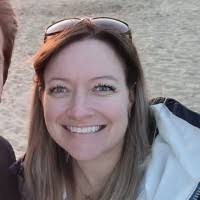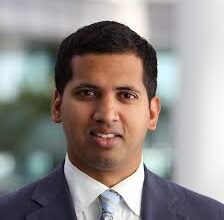Helen Geake: The Archaeologist Who Brought Anglo-Saxon England to Life

Introduction
Few names in British archaeology have achieved both academic respect and public recognition quite like Helen Geake. Known for her deep expertise in Anglo-Saxon archaeology and her memorable presence on Channel 4’s Time Team, Geake has inspired a generation to see beyond grand ruins and treasure hoards, focusing instead on the subtle artefacts that reveal how ordinary people once lived. Her career bridges the worlds of scholarship, public engagement, and heritage conservation — making her one of the most influential figures in modern archaeology.
Early Life and Education
Born in Wolverhampton in 1967, Helen Geake grew up in Bath, where her early fascination with the past began to take shape. She attended the Royal High School Bath, showing early promise in academic pursuits, though archaeology was not her first path. Initially, she trained as a secretary, but fate soon intervened.
While attending public lectures by the late Professor Mick Aston — who would later become a colleague on Time Team — Geake discovered her passion for archaeology. The field’s blend of detective work, history, and cultural discovery captivated her. She decided to pursue it professionally, enrolling at University College London for her undergraduate studies in archaeology, later completing her DPhil at the University of York.
Her doctoral thesis, The Use of Grave Goods in Conversion-Period England c.600–c.850 A.D., explored how burial practices reflected the profound social and religious changes of early medieval England. This research laid the foundation for her lifelong expertise in Anglo-Saxon archaeology.
The Path to Professional Archaeology
After completing her studies, Geake joined the Norwich Castle Museum as the Assistant Keeper of Archaeology, where she managed significant early-medieval collections. Her work went far beyond curation — she sought to connect museum artefacts with the public, interpreting their stories in ways that ordinary visitors could appreciate.
Her next major role came with the Portable Antiquities Scheme (PAS), a groundbreaking national initiative encouraging members of the public to record archaeological finds discovered by metal-detectorists. As the Early-Medieval and Post-Roman Finds Adviser, Geake played a crucial part in cataloguing artefacts that might otherwise have been lost to history. Her expertise helped to build one of the UK’s most valuable databases of small finds, enhancing research into the daily lives of ordinary people across centuries.
Rise to Fame: Time Team and Public Archaeology
The Television Breakthrough
Helen Geake’s calm authority and enthusiasm for uncovering the past made her a perfect fit for television. She first appeared on Channel 4’s Time Team in 1998, eventually becoming a regular presenter between 2006 and 2010. The programme’s mission — to carry out archaeological digs across Britain in just three days — captured the public imagination.
On screen, Geake’s role as the Anglo-Saxon specialist was pivotal. She guided the audience through complex historical interpretations, explaining how small, seemingly ordinary artefacts could rewrite chapters of British history. Her explanations were clear, engaging, and underpinned by academic rigour.
Inspiring Public Interest
Through Time Team, Geake helped shift the public perception of archaeology from a niche academic pursuit to an exciting, accessible adventure in discovery. Her ability to translate intricate archaeological data into compelling narratives earned her admiration from both professionals and viewers alike.
She also became an advocate for public participation in archaeology, championing initiatives that encouraged ordinary people to contribute to heritage research — a theme that remains central to her work today.
Research and Publications
Helen Geake’s academic achievements are extensive. Her key areas of research revolve around burial practices, material culture, and religious transformation in early medieval England.
Her 1997 book, The Use of Grave Goods in Conversion-Period England, remains a cornerstone in Anglo-Saxon studies. In it, she explores how the inclusion or exclusion of objects in graves reflected spiritual and cultural shifts from paganism to Christianity. By analysing thousands of graves and artefacts, Geake demonstrated how subtle changes in material culture could illuminate broader societal transitions.
She has also contributed to numerous academic journals and edited volumes, including works on Anglo-Saxon jewellery, pottery, and regional studies of burial customs. Her writings continue to inform the field of medieval archaeology and are widely cited in both academic and museum contexts.
Expertise and Contributions
Focus on Small Finds
One of Helen Geake’s most defining contributions is her emphasis on “small finds” — the everyday objects left behind by ordinary people. Unlike monumental structures or royal treasures, small finds reveal how communities lived, traded, and worshipped.
Geake argues that these artefacts, though modest in appearance, provide the most intimate connection to the past. Her work has helped scholars reassess the significance of items like brooches, beads, and weapons as indicators of identity, belief, and cultural exchange.
Bridging Academia and the Public
Through her dual role as scholar and communicator, Geake embodies the essence of public archaeology. Her efforts ensure that archaeological discoveries are not locked away in academic journals but shared with the broader public who fund, support, and often participate in these discoveries.
Her involvement with the Portable Antiquities Scheme has been particularly transformative, ensuring that artefacts found by detectorists are properly recorded and preserved for future study.
Political and Environmental Advocacy
Beyond archaeology, Helen Geake has shown a strong commitment to community and environmental issues. A long-time supporter of the Green Party, she has stood as a parliamentary candidate in general elections and served on Mid Suffolk District Council.
Her political work reflects the same values she upholds in her archaeological career — sustainability, stewardship of the land, and respect for the shared heritage that connects people across generations. For Geake, caring for the environment and caring for history are inseparable responsibilities.
Recognition and Awards
In 2003, Helen Geake was elected a Fellow of the Society of Antiquaries of London (FSA), one of the highest honours in British heritage scholarship. This fellowship recognised her significant contributions to the understanding of early medieval archaeology and her efforts to engage the public with historical research.
Her reputation as both a scholar and communicator has earned her respect not only from academic peers but also from countless enthusiasts inspired by her Time Team appearances.
Personal Life and Influence
Helen Geake is married to Angus Wainwright, a fellow archaeologist with the National Trust. Together, they share a passion for heritage preservation and public engagement. Their partnership represents a shared belief that archaeology should not remain confined to textbooks or museums — it should live through community involvement, education, and storytelling.
Geake’s influence extends beyond her own generation. She has mentored young archaeologists, encouraged women to pursue careers in science and heritage, and demonstrated that academic excellence and public communication can coexist.
Today, her work continues to inspire new audiences through public talks, heritage initiatives, and educational programmes.
Legacy and Lasting Impact
Helen Geake’s career exemplifies how archaeology can enrich both scholarship and society. Her dedication to early medieval studies has transformed our understanding of Anglo-Saxon England, while her media work has ensured that this knowledge reaches millions of people.
She has redefined what it means to be a public archaeologist — someone who not only unearths the past but also gives it meaning for the present. Her voice remains a reminder that history is not static; it evolves with each new discovery and interpretation.
Conclusion
Helen Geake’s journey — from a student inspired by a lecture to one of Britain’s most respected archaeologists — is a testament to curiosity, perseverance, and passion for the past. Through her scholarship, television work, and public engagement, she has illuminated a crucial chapter of English history and shown how archaeology can connect people across time.
Her story continues to encourage young scholars and heritage lovers alike to look beneath the surface, to value the “small finds” that tell great stories, and to remember that every artefact, no matter how ordinary, has a voice waiting to be heard.



